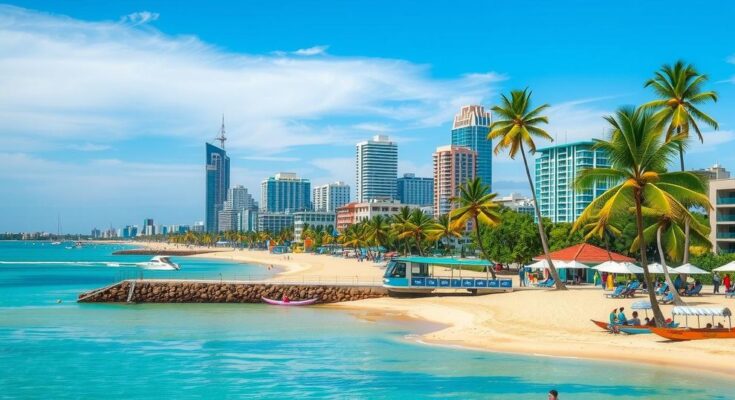Thailand’s economy is experiencing mixed signals, impacting sectors like Pattaya’s tourism. The stock market declined due to major stock sell-offs, particularly in energy and banking. Despite external economic stimulus providing some optimism, concerns about fund flows persist. Pattaya benefits from a weaker baht, enhancing tourism, but faces uncertainties due to broader economic challenges.
Thailand’s economy presents a multifaceted landscape, significantly impacting sectors such as tourism in Pattaya. Recently, the Thai stock market experienced a downturn, closing at 1,189.55 after dropping 17.41 points. This decline is attributed to sell-offs in major stocks, particularly within the energy sector, following a decrease in global crude oil prices. Additionally, banking stocks, which had previously demonstrated strong performance, faced profit-taking, prompting investor interest to shift towards mid- and small-cap stocks that exhibit growth potential.
Despite global uncertainties, economic stimulus initiatives in nations like Germany and China offer a glimmer of hope for Thailand’s financial market. Nonetheless, local markets are challenged by concerns regarding fund flows and the restructuring of Thai ESG 2 funds, which will start to receive capital from maturing LTF funds. Analysts indicate a lack of immediate positive catalysts, with large-cap stocks contending with global economic pressures. Prospects remain more optimistic for mid- and small-cap stocks, as the market’s support level rests between 1,180-1,170 points, while resistance stands at 1,225-1,240 points.
In Pattaya, the economy’s fluctuations significantly impact its tourism-driven sector. A depreciating baht has made Thailand more appealing to foreign tourists, especially during popular events such as Songkran and Pattaya’s festival season. As of March 6, the exchange rate opened at 33.59 baht per US dollar, reflecting a slight strengthening from 33.68 baht the previous day. However, the baht has maintained a gradual downtrend, oscillating between 33.57 and 33.73 baht per dollar, largely due to the weakening US dollar caused by unimpressive private sector job growth data.
For Pattaya, a favorable exchange rate enhances tourist spending, benefiting the local economy, including businesses, hotels, and entertainment venues. However, overarching economic challenges, such as erratic foreign investments and disappointing performance of large-cap stocks, introduce an element of uncertainty. While mid-sized businesses and tourism-related ventures may prosper, the overall economic outlook hinges on Thailand’s ability to maintain investor confidence and leverage its tourism sector for fostering economic stability.
In conclusion, Thailand’s economy exhibits a complex interplay affecting various sectors, particularly tourism in Pattaya. Despite recent market downturns and uncertainty in large-cap stock performance, there exists optimism for mid- and small-cap stocks. The favorable exchange rate has enhanced tourism prospects, yet broader economic challenges continue to loom. The future stability of Pattaya’s economy is contingent upon sustaining investor confidence and effectively capitalizing on tourism opportunities.
Original Source: www.pattayamail.com




